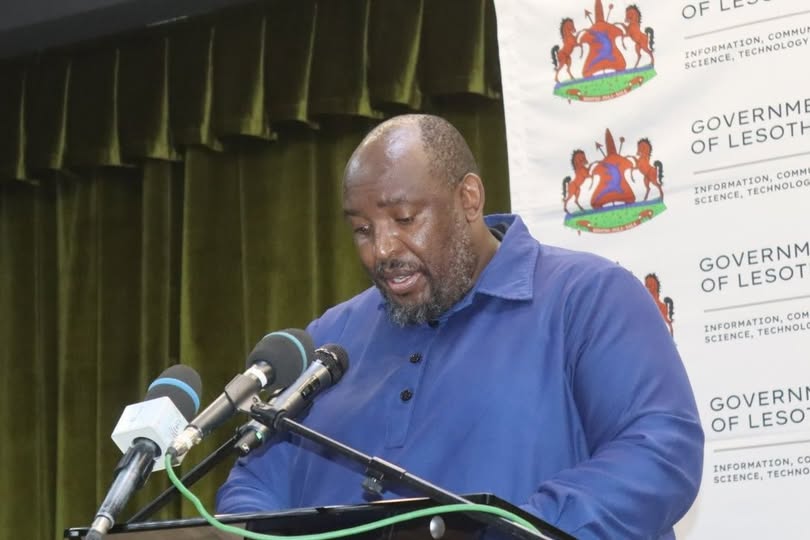…as Africa battles to bridge the digital divide
Moroke Sekoboto
LESOTHO this week hosted African Union (AU) Member States to assess Africa’s progress toward a digitally inclusive and innovative future.
The meeting, held at Lancers Inn in Maseru, was convened under the theme “Validation of the Draft Report on the Assessment of the Digital Transformation Strategy (DTS) 2020–2030 Implementation in Africa”.
It brought together key stakeholders from across the continent to evaluate milestones and challenges in achieving Africa’s digital transformation goals.
Officially opening the workshop, which began on Tuesday and concludes today, the Principal Secretary in the Ministry of Information, Communication, Science, Technology and Innovation, Kanono Ramashamole, emphasized the importance of digital public infrastructure, responsible artificial intelligence (AI), and innovation ecosystems in driving socio-economic transformation.
Mr Ramashamole said Lesotho continues to play its part through various initiatives such as e-government services, digital skills programmes, innovation hubs, and rural connectivity projects — all aimed at bridging the digital divide.
“This session marks a critical step forward from our consultative virtual meeting last month, where we laid the groundwork for today’s discussions,” Mr Ramashamole said.
“This week, we come together to validate the draft report on the assessment of the Digital Transformation Strategy 2020–2030 implementation across Africa.”
He described the Digital Transformation Strategy as a “strategic instrument pivotal to accelerating sustainable development and unlocking the potential of our digital future”.
He further highlighted that commitments made by the AU Council — particularly in advancing digital transformation, data governance, and artificial intelligence — were not just policy frameworks but “catalysts for social development and transformation across the continent”.
“For instance, investment in digital public health initiatives has had a profound impact by extending life expectancy and reducing child mortality. These are tangible benefits that reach our people daily.”
Mr Ramashamole expressed optimism that the digital revolution would deliver “concrete human progress”.
He that AU digital priorities were aligned with the recent G20 discussions in Cape Town, which focused on digital inclusion, digital public infrastructure as the foundation for transformation, and nurturing digital innovation ecosystems.
“All these pillars are critical to Africa’s competitiveness and resilience in the global digital economy.
“In Lesotho, we are implementing AU goals through several initiatives, including e-government services and pilots on Digital ID and Digital Payments. We have also partnered with UNDP to promote digital skills in schools and communities.
Furthermore, we’ve expanded broadband coverage to reach all rural areas — with 96 percent covered by terrestrial networks and the rest by satellite. However, affordability of devices and data prices remain key challenges.”
Meanwhile, the Director of Infrastructure and Energy at the African Union Commission, Moses Bayingana, said digital transformation is a powerful driver of inclusive and sustainable growth.
“Innovation and digitalisation are stimulating job creation, addressing poverty, reducing inequality, facilitating service delivery, and contributing to the achievement of Agenda 2063 and the Sustainable Development Goals,” Mr Bayingana said.
He said while most AU Member States have developed ICT policies and collaborated with national governments to identify barriers to harmonising digital laws and regulations, weak coordination among continental institutions remains a concern.
“This deficiency must be addressed immediately,” he warned.
The workshop’s outcomes are expected to inform the AU’s next steps in strengthening digital cooperation, harmonisation, and capacity building across Africa as it moves toward achieving the goals of the 2020–2030 Digital Transformation Strategy.

